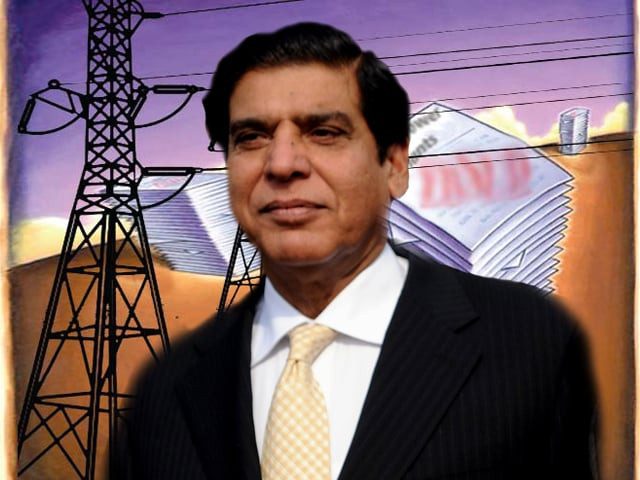The prime minister and electricity
Solving the power crisis is beyond the power of one man. At least, this time he isn’t promising us a miracle.

By far, the most important decision to come out of the cabinet meeting was Ashraf’s decision that all government departments must pay their electricity dues. Different government branches and offices have accumulated unpaid bills that run into the tens of millions and have been major contributors to the circular debt that has wrecked the power sector. However, as always, the prime minister’s words alone aren’t enough. It is only once these bills have been paid and the circular debt reduced that we will find out if the head of government has the political will to follow through on this promise. The decision to release 28,000 tonnes of oil to fuel power plants should also provide some short-term relief.
But not all the news from Ashraf’s meeting on the power crisis was positive. The secretary for water and power confidently asserted that another 2,100 MW of electricity would be added to the national grid by the end of the month. These projections should be taken with a large heaping of salt since they are dependent on the vagaries of weather. Should the monsoon season be late or not as pronounced as predicted that additional electricity will never be seen. Ashraf’s declaration that there would be no loadshedding during sehri and iftar in the month of Ramazan is also hardly cause for celebration since it only guarantees electricity for a couple of hours a day. As well-intentioned as Ashraf may be, solving the power crisis is beyond the power of one man. At least, this time he isn’t promising us a miracle.
Published in The Express Tribune, June 28th, 2012.



















COMMENTS
Comments are moderated and generally will be posted if they are on-topic and not abusive.
For more information, please see our Comments FAQ